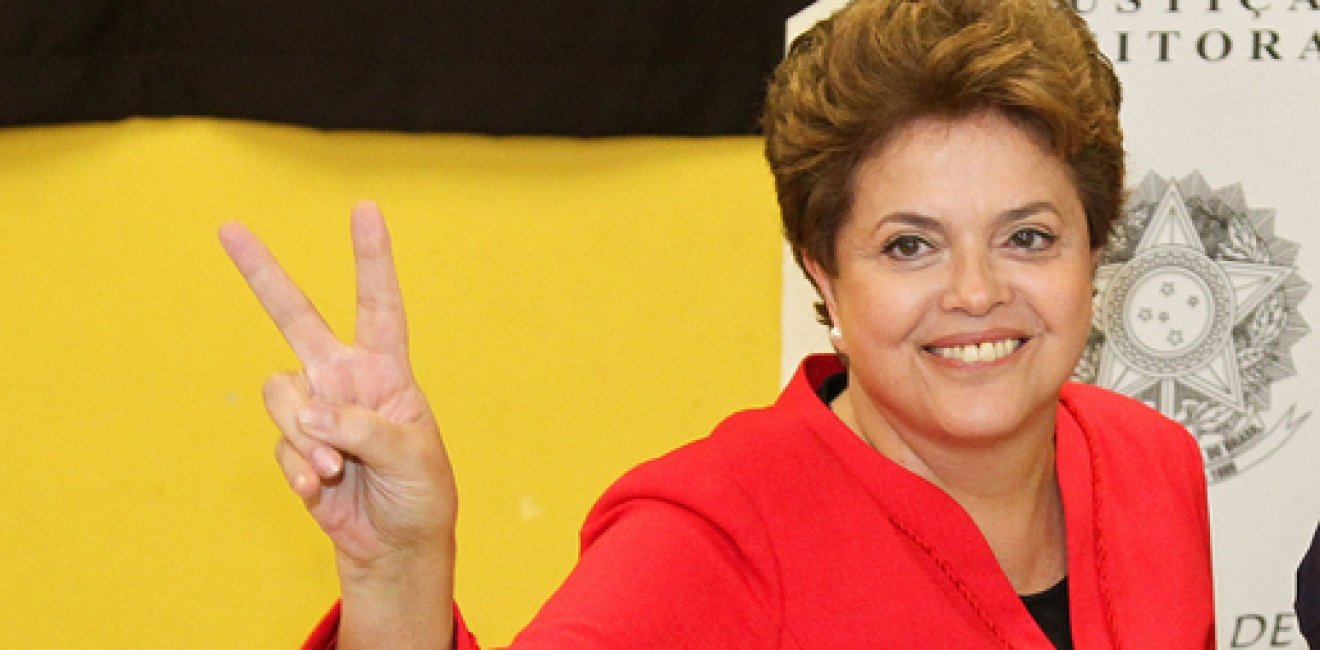Reelected, Rousseff Promises She Will be “A Better President"
Director of the Brazil Institute, Paulo Sotero, gives his take on Dilma Rousseff's reelection.
Director of the Brazil Institute, Paulo Sotero, gives his take on Dilma Rousseff's reelection.

President Dilma Rousseff's narrow reelection last Sunday gave her a political victory without a clear political mandate. A highly negative and bruising campaign marked by personal attacks and allegations of corruption exchanged between Rousseff and her challenger, senator Aécio Neves, left a divided and angered public wondering whether the government and the opposition, which includes the vast majority of the business community, will be able to reconcile their differences and work together to reignite a paralyzed economy and put Brazil back on a more promising path than it has been on in recent years.
Rousseff received 51.65% of the votes, or 54.5 million, against Neves’ 48.69%, or 51 million, in the narrowest victory by a candidate in the seven presidential elections Brazil has held since the 1980s. Her triumph became clear only after 80% of the votes were counted.
Speaking to supporters, she said she did not believe the elections had left the country divided and called for dialogue. “Sometimes in history, tighter election results produce stronger and faster changes than ample victories,” she said, expressing hope that this will be the case in Brazil. In her victory speech, Rousseff promised to be “a better president” in her second term and move aggressively to promote a political reform she first proposed but failed to advance after the massive street protests of June 2013. It is improbable, however, that the proposal will be welcomed in Congress, where Rousseff’s Workers’ Party has lost ground and will have to deal with stronger and more demanding partners in the PMDB.
With the economy on the verge of a recession and the government expected to soon announce a series of negative news on fiscal performance and growth, which had been postponed, the re-elected president will enjoy a very short honeymoon, if any. Her first decisions will likely include the announcement of a new economic team capable of gaining some confidence and trust from Brazilian and foreign investors. They have never warmed to Rousseff’s interventionist style and felt further alienated by the tone of the campaign against her challengers, who were accused of being closer to bankers and markets than to the people. The BOVESPA fell sharply on Monday morning and PETROBRAS shares dropped as much as 12%. Concerns about the economy and the need to give positive signals to markets should push the president to pursue closer and more consequential relations with the United States and Europe. The anemic state of the Brazilian economy will limit, however, initiatives to foster trade liberalization.
Well placed analysts say that a stronger PMDB, led by Vice-president Michel Temer, will no longer accept to be relegated to the symbolic role it had in the first Rousseff administration. It could insist on receiving control of the Finance ministry and/or the president’s chief of staff position in exchange for its continued support, or threaten to join the opposition. This scenario could materialize in the event that a brewing corruption scandal involving Petrobras undermines the president’s authority.
Certainly aware of that possibility, Rousseff, who is seen by the people as an honest politician, vowed on Sunday to move aggressively against corruption. The issue is likely to torment her and her government in the foreseeable future as the courts deepen the investigations of alleged fraudulent deals worth billions of dollars involving former senior directors of Petrobras, PT members and associates, and dozens of executives of companies that sell goods and services to the giant state oil company. The case dominated the scene in the final days of the campaign after the national weekly news magazine VEJA published a cover story involving both Rousseff and her predecessor and mentor, Luiz Inácio Lula da Silva, on a major scandal of contracts with the state oil company. The allegations are unproven and the president said she would sue the publication.
The defeated Neves will now return to the Senate to lead an opposition in Congress that has emerged from the elections stronger in numbers and in quality of the newly elected members. He congratulated Rousseff on Sunday evening and urged her to unite the country. It will take a while, however, for the wounds of the campaign to heal and for Brazil to find its footing after the most wrenching electoral battle since the reinstatement of democracy three decades ago.
Paulo Sotero is Director of the Brazil Institute at the Wilson Center.
Photo courtesy of flickr user Rede Brasil Atual.


The Brazil Institute—the only country-specific policy institution focused on Brazil in Washington—aims to deepen understanding of Brazil’s complex landscape and strengthen relations between Brazilian and US institutions across all sectors. Read more



